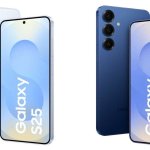Beating the street and its own guidance, Zynga reported record third-quarter revenue of $705 million, up 40% from the same period last year and reaching its largest mobile audience ever of 183 million monthly active users, up 120% year over year.
Despite warning in the second quarter of a material impact from Apple’s privacy policy changes that caused a dramatic 30% sell off in its stock from August 5 through November 4, Zynga’s share price jumped today on news that it had better than expected user-acquisition performance and is back on track to finish the year strong.

Zynga CEO Frank Gibeau. Image Credits: Zynga
TechCrunch spoke with Zynga CEO Frank Gibeau on how the mobile game giant has been able to navigate the advertising crisis while making moves to expand cross-platform and onto the blockchain.
Weathering the storm
On April 26, when Apple changed its IDFA (Identifier For Advertisers) and required developers to use its ATT (App Tracking Transparency) tool to allow users to opt out of being tracked across iOS apps, it shook the mobile ad ecosystem. New users gained during the lockdown dropped off in droves as pandemic restrictions lifted but as targeting became more difficult, acquisition costs soared. Companies began to report a 15%-20% hit to revenue according to marketing firm Consumer Acquisition. Among those most affected were ad platforms like Snapchat, advertisers like Peloton and Zynga, which is both an ad platform and advertiser.
“The midpoint of this year was tough,” Gibeau told TechCrunch. “We were one of the first ones out of the chute with the combination of IDFA and the great reopening demand issues. To navigate, we pulled back on our ad spend and began to experiment with new tools and techniques, and by September, we started to see yields come back to normal.”
Gibeau said they waited to launch FarmVille 3 until growth rates returned, and he was excited to see the game shoot to the No. 1 and No. 2 spots on the top free iPad and iPhone app store, respectively, after its November 4 launch.
“I’m happy to report that we feel the worst is behind us and we are scaling up our spending for new games as we head into the fourth quarter. The key to navigating this period has been how we use our first-party data with the Chartboost platform,” he said, referencing the ad network Zynga acquired earlier this year.
“We have a lot of data about what happens when players come into our games, the events they play and what advertisers are doing in our existing supply. First-party data allows us to build models that make predictions about the types of returns or auctions that would be beneficial to us,” he said.
Zynga is also partnering with Unity, Google and Iron Source, among others, to find ways to better target players.
“There are a lot of smart people attacking this problem. It’s more a function of time than there’s not going to be a solution,” he said. “Over the long term, Apple is building a capable platform to support a healthy advertising market while protecting player privacy, and we’re happy to work with them on this,” he said.
Rocking hypercasual
Although 80% of Zynga’s business is subscriptions and microtransactions from in-app purchases, a fifth of the company’s revenue is from advertising, a fast-growing segment being driven by the popularity of hypercasual games, which are games with simple interfaces that can typically be played in fewer than 30 seconds.
In the third quarter, Zynga nearly doubled its advertising revenue over the prior-year period, said Gibeau, attributing its success to Rollic, an Istanbul-based game studio that Zynga acquired a year ago that helped it become a top-three publisher in the category.
“If you look at the number of installs on the app stores, hypercausal is the largest category. These are very inexpensive games that reach massive audiences and utilize advertising as its primary means of monetization. It’s a very lucrative place for us to be and a great feeder of users into our network that ties into our ambitions to create an at-scale publishing and advertising platform that will be a growth driver for us into 2022 and beyond,” said Gibeau.
All roads lead to the metaverse
Zynga’s next big game release is Star Wars: Hunters, which is soft launching on Android in select markets next week and testing on iOS and Switch in the New Year, Gibeau said. It’s the company’s first cross-platform game on console and FarmVille 3 was its first cross-platform launch on macOS.
Gibeau explained his interest in making Zynga’s mobile games playable on other platforms.
“FarmVille fans and Star Wars fans are everywhere, so it really behooves us to be platform agnostic and make our experience available as many places as possible,” he said. “At the end of the day, we’re a social game company that believes it’s more fun to play games together than by yourself. So as part of our culture, we like to innovate and try new things.”
Since 2020, Zynga has had games on Snapchat, Google Nest and Amazon Alexa, and just released its first game on TikTok called Disco Loco 3D, which is a free-to-play music and dance challenge.
“In gaming you can get caught out if you miss the next platform. If you get that wrong, it can be pretty painful. So we thought it would be cool to develop experiences on these social platforms to see if there’s any interest. With Snapchat, we partnered with them to help them figure out how to make gaming more a part of their ecosystem, and we’re seeing some good results — but it’s early days,” said Gibeau emphasizing that these games are intended to be proof of concept more than revenue generators.
With Netflix Gaming having launched on November 2 with former Zynga chief creative officer Mike Verdu at the helm, Gibeau said, “For Netflix, there’s a lot to learn in terms of how they want to approach the subscriptions end of the business and how their users interact with the games, so I don’t know if they’re ready yet for third-party content, but it would be great to talk with them at some point in the future.”
He added, “Whether it’s Netflix or Roblox or Epic or Valve, if they have a platform and it makes sense for our content to be there and reach an audience, we’ll definitely investigate it.”
But perhaps Zynga’s biggest venture ahead lies with the hire of former EA executive Matt Wolf to head up its new blockchain gaming division. As the NFT craze sweeps the gaming industry, blockchain startups like Mythical Games, Animoca and Forte have reached billion-dollar valuations in the past few months to help developers create permanent collectible items that can be used across games.
“There’s a lot of capital and talent heading into the space,” said Gibeau, explaining the timing of the decision. “Our founder and chair, Mark Pincus, and longtime board member, Bing Gordon, are very hot on the sector and we believe that blockchain is going to be part of the fabric of gaming long term.”
Gibeau said Wolf is setting up a skunkworks project to identify the best path forward and will be looking at things like how owning a farm in the FarmVille franchise could drive greater engagement and retention.
“We plan to move at Zynga speed so you should start to see some things from us in the coming months,” he said.
Powered by WPeMatico






